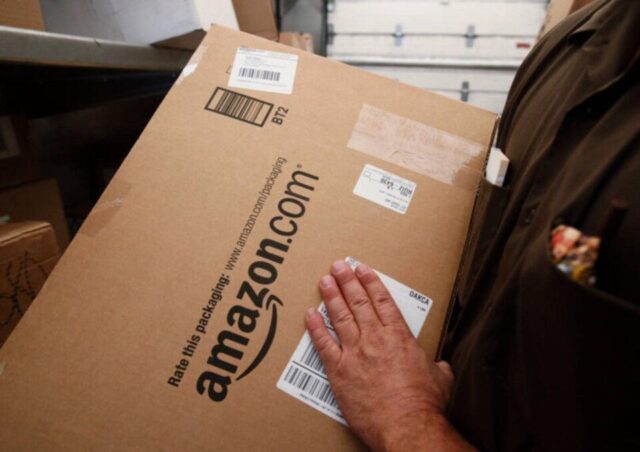South African businesses now have an additional e-commerce and online retailing platform after Amazon, the giant US company that is spreading across the globe, launched a local sellers platform to rival takealot.com in a rapidly growing multibillion-rand industry.
SOUTH African businesses now have an additional e-commerce and online retailing platform after Amazon, the giant US company that is spreading across the globe, launched a local sellers platform to rival takealot.com in a rapidly growing multibillion-rand industry.
Takealot.com, currently the biggest player in South Africa’s online retailing, owned by JSE-listed Naspers, had some 14 million visits to its e-commerce platform last year, 90% of whom were registered in South Africa, data from Statista shows.
South Africa’s e-commerce giants include, among others, Takealot, Makro, Superbalist, Bash and Loot.co.za.
RMB research sees the value of e-commerce transactions in South Africa surging by 150% to R225 billion by 2025.
This is the industry that Amazon will be foraying into, which Takealot.com in any case highlights as holding immense potential to attract big global players. Although Nigeria is the other African market that Amazon has set its eyes on, it is its scheduled foray in 2024 into South Africa that has ignited widespread interest in the industry.
Local small-scale to medium enterprises such as Johannesburg-based African Mamas Crafts and Reader’s Warehouse said this week that the launch of Amazon in South Africa brings opportunities “to leverage their tools and expertise to grow our e-commerce business”, in addition to the potential to “expand our e-commerce business and tap into a broader customer base” in the country.
African Mamas Crafts employs home-based crafters in rural areas while Reader’s Warehouse was created by two brothers with a keen interest in reading and books.
Robert Koen, Amazon’s general manager for the sub-Saharan Africa region, said the South African service launch next year would be targeting such businesses.
“We look forward to launching Amazon.co.za in South Africa, providing local sellers, brand owners, and entrepreneurs – small and large – the opportunity to grow their business and delivering great value and a convenient shopping experience for customers across South Africa,” said Koen.
Starting this month, independent sellers in South Africa are able to register their businesses on the Amazon sellers’ platform. Online retailing is rapidly growing in South Africa, with RMB saying there were now more than 5,000 businesses online in South Africa with a turnover of at least R100,000 or more.
Analysts said the launch of Amazon e-commerce and online retailing in South African might force established local e-commerce players to reduce their fees.
The allure of the e-commerce and online retailing industry in South Africa is being pushed up by its high internet penetration rate that enables access to online platforms.
The nascent status of e-commerce and online retailing in Africa has, however, proven to be a tough opportunity to explore for other operators such as Jumia which recently reported losing a million customers in the half year to June 2023.
The African e-commerce giant also had 6 million less fulfilled orders as tough market conditions across Africa munched into its potential.
However, for South Africa, the market could prove to be different. For example, South Africa has a higher internet penetration rate, and a sophisticated financial services sector that makes online payments and e-commerce transactions seamless and convenient options compared to visits to brick and mortar stores.
In 2022, the data from Statista showed that nearly 80% of South Africans used the internet and this rate was expected to entrench.
This is projected to grow by 10 percentage points by 2027. Approximately 27 million e-commerce users in South Africa were registered in 2022, whereas by 2027 it is forecast to increase to 37.9 million users, according to the research by Statista.
– BUSINESS REPORT








